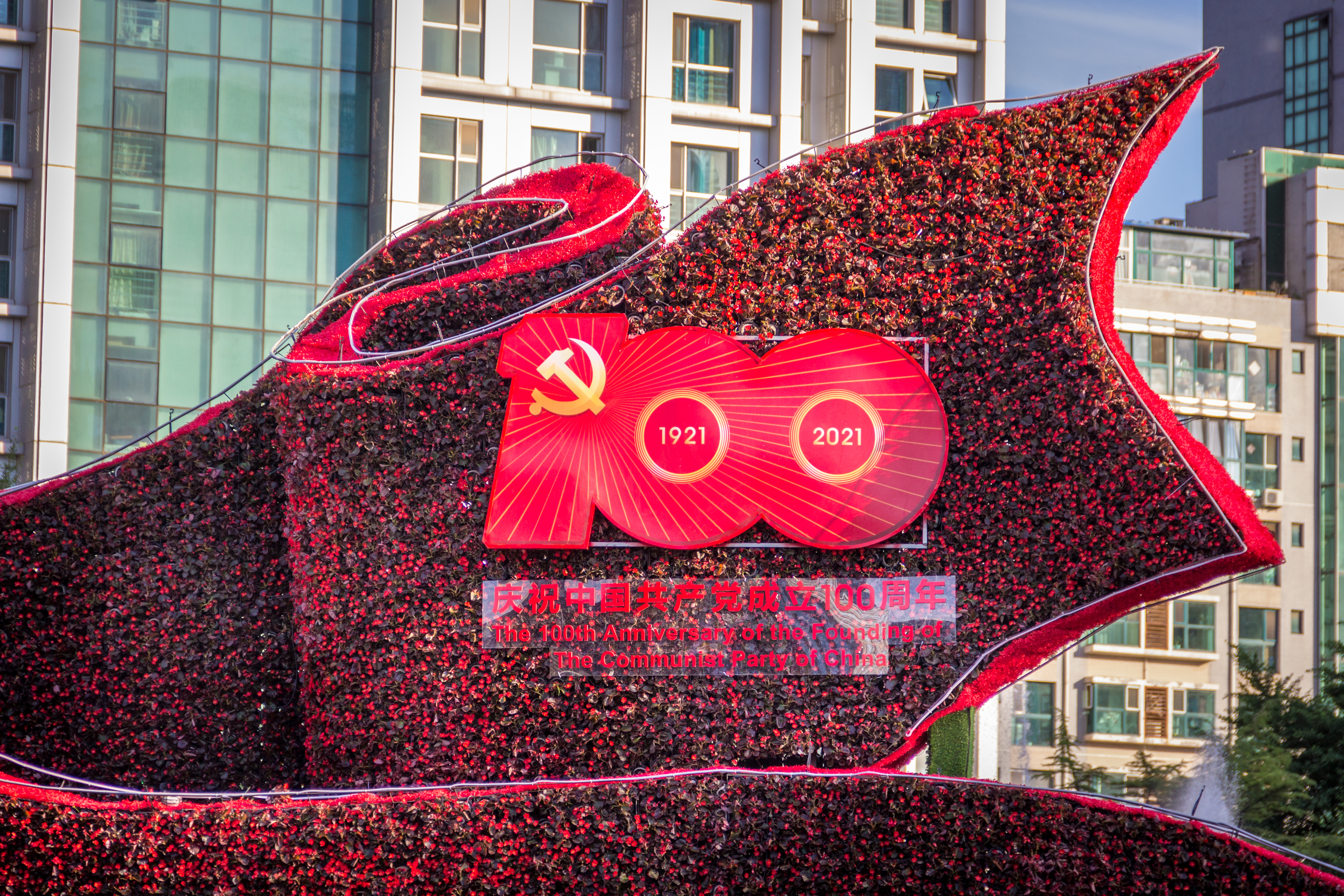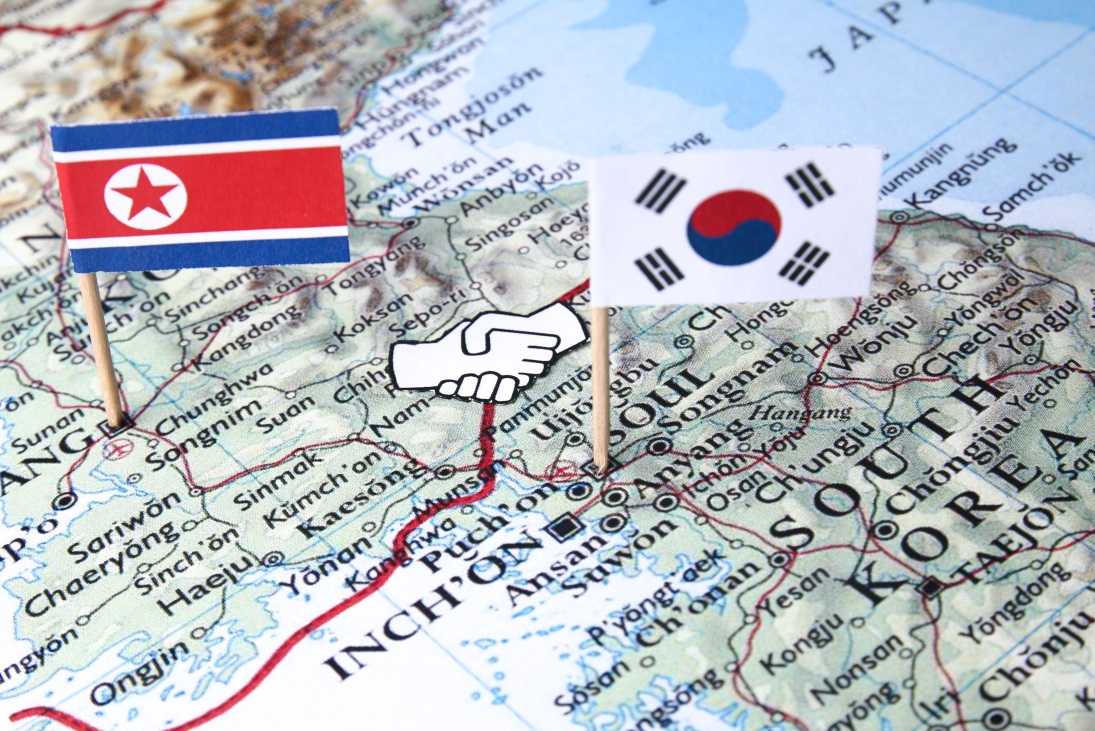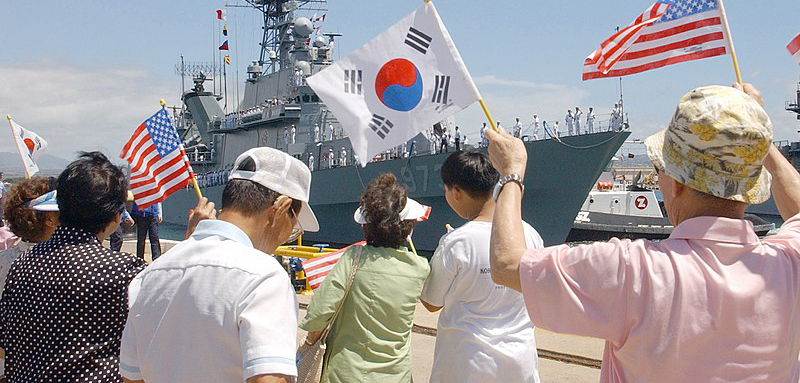As 2021 is the 100th anniversary of the Chinese Communist Party (CCP) and the 60th anniversary of the North Korea-China Treaty of Friendship, Cooperation and Mutual Assistance (hereinafter referred to as the “Treaty of Friendship”), the relationship between China and North Korea is gaining attention anew. On July 1, Kim Jong Un, the leader of the Workers’ Party of Korea, sent China a congratulatory message and standing wreath in commemoration of the 100th anniversary of the establishment of the CCP and traded congratulatory remarks with President Xi Jinping on July 11 to celebrate the 60th anniversary of the signing of the Treaty of Friendship, reaffirming and emphasizing the importance of their relationship. Dialogue and interactions between the state leaders of China and North Korea hold more meaning than in other bilateral relations. As the COVID-19 pandemic has cut off not only interactions and meetings between leaders, but also those of high-level officials, the fact that the leaders of China and North Korea exchanged congratulatory messages is meaningful in itself.
Strategic intentions behind North Korea’s “congratulatory messages that emphasized “socialist solidarity” with China
The leaders affirmed through their messages that the Treaty of Friendship laid “important political and legal foundations for consolidating the cooperative friendship”. They also emphasized that the two countries have strengthened their traditional relationship built on the blood of the people of both countries and brotherhood, stating that they “strengthened and developed the consolidation of socialist causes of the two countries and made important contributions to the regional and global peace and stability for the past 60 years”. The two countries exchanged congratulatory messages that were formal and similar to remarks made in the past to mark the 60th anniversary of the friendship treaty.
However, the domestic and foreign circumstances under which China and North Korea have exchanged congratulatory messages are unique. To illustrate, the US-China conflict and competition has peaked and tensions surrounding the North Korean nuclear problem are increasing every day. North Korea faces isolation and adverse economic conditions and China is solely focused on domestic political events in the run-up to the 20th National Congress of the CCP in 2022 amidst the COVID-19 pandemic. Although the messages exchanged are similar to previous ones, the meaning conveyed may vary as the Korean Peninsula is currently in a complicated and unique situation. It has become increasingly clear that North Korea-China relations are no longer an independent variable but a dependent one affected by the U.S. and U.S.-China relations. As such, one must look beyond just North Korea and China and factor in the U.S. as a variable to see the true nature of their relationship. In fact, the congratulatory messages contain subtle yet important content referring to the “U.S. factor.”
The message that Kim Jong-un sent, in particular, contains unprecedented important content. Kim stated in his message that “the challenges and distractions by hostile forces are becoming more vicious”, which is in fact targeting the U.S. with harsh and straightforward expressions, previously unused. Kim had also attacked the U.S. in a similar way in the message he sent celebrating the CCP’s 100th anniversary. In the message, he stated that “hostile forces' vicious slander and all-round pressure onto the CCP are no more than a last-ditch attempt”. An editorial on the front page of the North Korean newspaper Rodong Sinmun reads, “As imperialists now have united and are plotting to isolate and crush socialist countries, North Korea and China must unite in accordance with the spirit and principles of the treaty and further develop their friendly relations.” It seems that Kim was showing his support by agreeing enthusiastically to President Xi Jinping. Xi said in his 100th anniversary commemorative address that “we will never allow any foreign force to bully, oppress, or subjugate us. Anyone who would attempt to do so will find themselves on a collision course with a great wall of steel forged by over 1.4 billion Chinese people”.
Kim is choosing to emphasize North Korea’s traditional comradeship and friendly cooperation with China while harshly condemning the U.S. and remaining indifferent to the Biden administration’s offer for dialogue. Pyongyang is explicitly expressing its support for Beijing, which is currently in conflict with the U.S., and showing off their solidarity. It is also notable that North Korea is setting America’s offensive stance from the standpoint of conflict between imperialism versus socialism and emphasizing strong socialist ties between itself and China.
North Korea may be stressing its cooperation with China due to several strategic reasons. First, North Korea may be especially emphasizing its ‘socialist unity’ with China because it looks at the CCP’s 100th anniversary as an opportunity to strengthen the foundation of its socialist system. Rather than jumping headfirst into unpredictable and uncertain dialogue with the U.S., it may be more important for North Korea, currently undergoing a crisis due to COVID-19 and economic difficulties, to fortify the foundations of its internal system. Second, North Korea may be aware of the reality that if they cannot expect immediate benefits, such as sanctions relief and financial aid, from dialogue with U.S., they have no choice but to side with China. North Korea may have felt the need to receive as much cooperation and aid as it can from China by bolstering its cooperative relations to solve urgent matters in the short term. Third, it may be a cunning strategy to hide North Korea’s intentions. By parading and strengthening its cooperation with China, North Korea may plan to stabilize its internal situation and prepare to negotiate with the U.S. by provoking them.
The meaning and limitations of changes in North Korea-China relations through ‘congratulatory message diplomacy’
On the other hand, China has not stressed the ‘U.S. factor’ to the extent that North Korea did in their congratulatory message diplomacy. Unlike Kim Jong-un, Xi Jinping did not mention or refer to the U.S. at all in his message congratulating the 60th anniversary of the signing of the friendship treaty. Rather, the Chinese state-run media left out abrasive expressions directed at the U.S. when reporting the congratulatory messages Kim sent for the CCP’s 100th anniversary and the treaty’s 60th anniversary to the public. However, there is no mistaking that the ‘US factor’ is an important variable to China even as they highlight their friendly cooperative relationship with North Korea. The “procurement of friendly nations” has become an important diplomatic strategy for China in its response to competition with the Biden administration. As the 100th anniversary of the establishment of the CCP is an important political event, the full support of North Korea as a fellow socialist state carries weight.
However, from China’s perspective, North Korea is a strategically complex and tricky ally as it is both a strategic asset and burden. It is inevitable that the entire Korean peninsula’s geopolitical value will soar from China’s standpoint, should things become tenser with maritime powers such as the U.S. On the other hand, it is also true that North Korea frequently causes trouble on the Chinese border with issues such as the North Korean nuclear issue and economic difficulties. Additionally, China’s strategic concerns intensified in 2018 when it saw that North Korea could radically change its relationship with the U.S. Although China does not wish for its conflict with the U.S. to spread to other areas over North Korea and its nuclear program, it is necessary for China to maintain its ties with North Korea to cope with sudden changes on the Korean peninsula brought upon by the instability of the North Korean regime, North Korea’s provocations, and improvements in the U.S.-North Korea relations.
Through its congratulatory message diplomacy, North Korea is flaunting its cooperation with China in an unprecedented way. China, however, is not responding to North Korea’s actions with the same level of enthusiasm, nor is showing signs of changing its stance towards North Korea and its nuclear program. In short, North Korea and China shared a common motivation to cooperate in order to counter the U.S. However, congratulatory message diplomacy makes it clear that China and North Korea each interpret the ‘U.S. factor’ differently. China’s policy towards North Korea is affected more by structural factors than changes in the two countries’ relations. That being the case, the fact that China and North Korea are showing off their socialist unity by exchanging messages does not mean they have become strategically closer with one another.
Circumstances regarding the Korean Peninsula are very unstable, with North Korea increasingly isolated, its nuclear negotiations stalled, and the escalation of the power race between the U.S. and China. Resolving such instability and tensions on the Korean Peninsula is of utmost priority as of now. Resuming U.S.-North Korean and inter-Korean dialogue would be best, but if it is infeasible in the near future, we would have to look forward to the small but new changes in North Korea-China relations creating a breakthrough. If strengthening ties between China and North Korea help North Korea find some relief from isolation and its financial problems and further stimulate U.S.-North Korean dialogue, such conditions could help stabilize the situation on the Korean peninsula. Of course, efforts to use the temporary breakthrough made through North Korea-China relations in ultimately opening the doors to inter-Korean dialogue will be key. ■
■ Dong Ryul Lee is Professor at the Department of Chinese Studies of the Dongduk Women’s University since 1997. He is now a chair at China Research Panel of East Asia Institute (EAI). Previously, he served as a policy advisor to the Republic of Korea Ministry of Unification and an executive committee member in the Joint Committee of Experts for Korea-China Strategic Cooperative Partnership. He received his Ph.D. in the Department of International Politics, Peking University in 1996. His research area includes Chinese foreign policy, international relations in East Asia, Chinese nationalism and minority.
■ Typeset by Kwang-min Pyo Senior Researcher
For inquiries: 02 2277 1683 (ext. 203) | ppiokm@eai.or.kr





